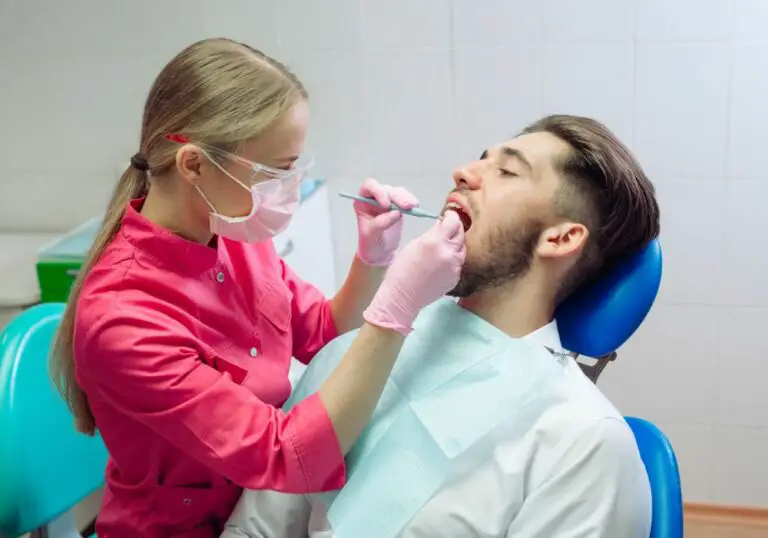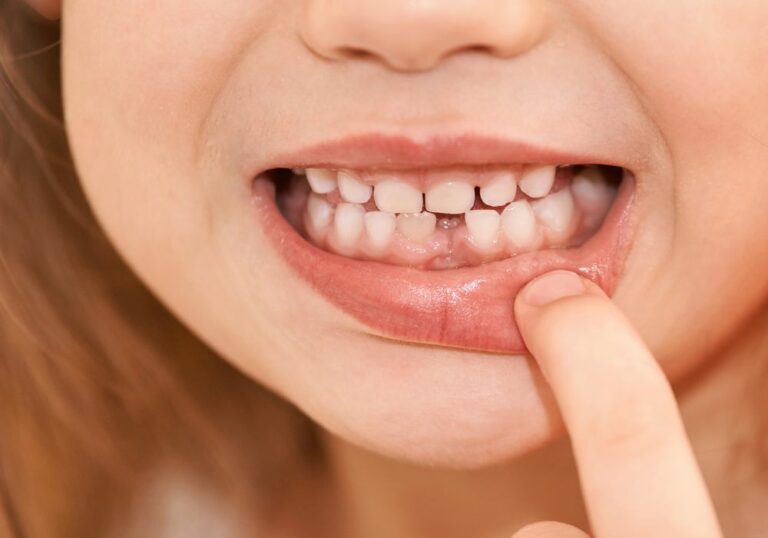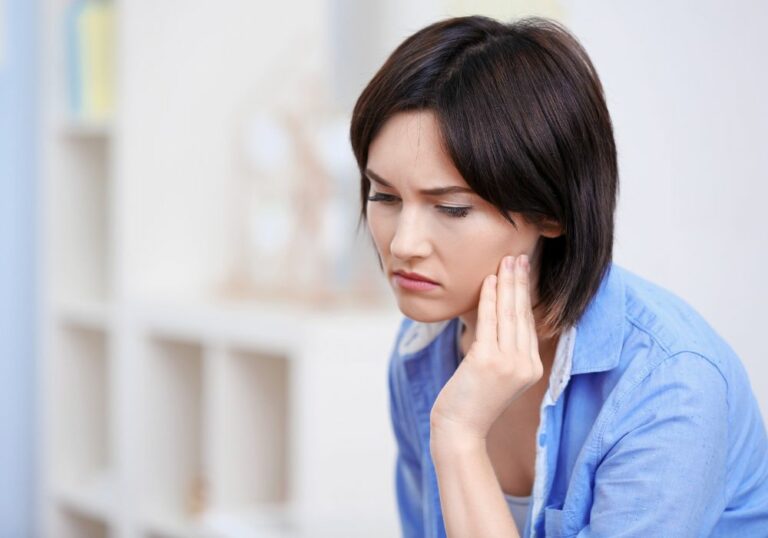Have you ever experienced your teeth vibrating? It can be a strange and uncomfortable sensation, but it is not uncommon. Vibrations in your teeth can be caused by a variety of factors, ranging from harmless to more serious conditions. In this article, we will explore what happens when your teeth vibrate and what you can do about it.
One possible cause of tooth vibrations is a condition called trigeminal neuralgia. This is a chronic pain disorder that affects the trigeminal nerve, which is responsible for sensation in your face. People with trigeminal neuralgia may experience a variety of symptoms, including sharp, shooting pain in the face, as well as vibrations or tingling sensations in the teeth or tongue. If you are experiencing these symptoms, it is important to see a doctor to determine the underlying cause and receive appropriate treatment.
Another possible cause of tooth vibrations is the use of vibrators during sexual activity. While using a vibrator can be a pleasurable experience, it is important to use it safely and in moderation. Overuse of vibrators can cause damage to the nerves and tissues in the genital area, which can lead to numbness, tingling, and vibrations in the teeth or other parts of the body. If you are experiencing these symptoms, it is important to take a break from vibrator use and talk to a healthcare provider if the symptoms persist.
Understanding Teeth Vibration
Have you ever experienced a sensation of your teeth vibrating? It can be a strange feeling and may cause concern. In this section, we will explore what causes teeth to vibrate and whether it is something to worry about.
Teeth vibration can be described as a feeling of your teeth shaking or buzzing. It can occur in one or more teeth and may be constant or intermittent. Some people may also experience other sensations such as tingling or itching in their teeth.
There are several reasons why your teeth may vibrate. One common cause is bruxism, which is the grinding or clenching of teeth. Bruxism can cause your teeth to vibrate due to the force and pressure exerted on them. Other causes of teeth vibration include:
- Dental abscess
- Tooth decay
- Gum disease
- Temporomandibular joint (TMJ) disorder
- Orthodontic treatment
- High-frequency vibration (HFV) therapy
If you experience teeth vibration, it is important to see your dentist to determine the cause and appropriate treatment. Ignoring the problem may lead to further dental issues and discomfort.
In some cases, teeth vibration may be a temporary and harmless sensation. However, if it persists or is accompanied by other symptoms such as pain or sensitivity, it may be a sign of a more serious dental issue. Your dentist can provide you with the necessary information and treatment options to address the problem and prevent further complications.
Overall, teeth vibration can be a strange and uncomfortable sensation, but it is important to identify the cause and seek appropriate treatment.
Causes of Teeth Vibration
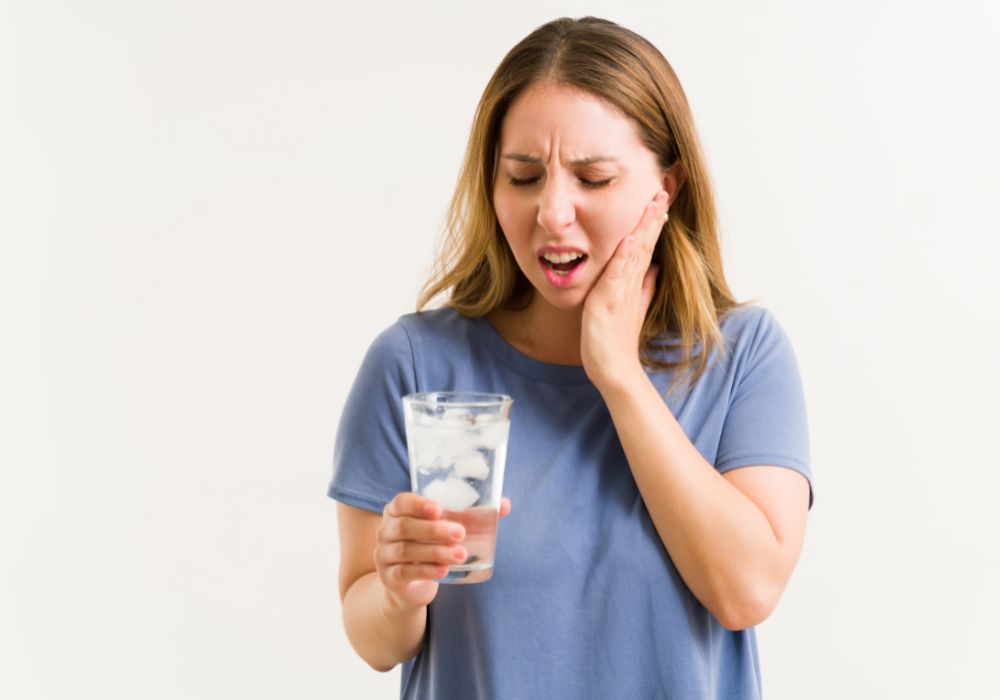
If you’ve ever experienced the sensation of your teeth vibrating, you may be wondering what could be causing it. Here are some common causes of teeth vibration:
Bruxism
Bruxism, or teeth grinding, is a common cause of teeth vibration. When you grind your teeth, the constant pressure can cause the teeth to vibrate. This can happen during the day or at night while you sleep. If you suspect that you may be grinding your teeth, talk to your dentist about treatment options.
Dental Procedures
If you’ve recently had a dental procedure, such as a filling or crown, you may experience some tooth vibration. This is usually temporary and should go away on its own within a few days. However, if the vibration persists or becomes more severe, you should contact your dentist.
Neurological Conditions
In some cases, teeth vibration can be a symptom of a neurological condition. For example, trigeminal neuralgia is a condition that causes severe facial pain, and some people with this condition may experience teeth vibration as well. Other neurological conditions that can cause teeth vibration include multiple sclerosis and Parkinson’s disease.
If you’re experiencing teeth vibration and are unsure of the cause, it’s important to talk to your dentist or doctor. They can help determine the underlying cause and recommend appropriate treatment options.
Symptoms of Teeth Vibration
If you’ve ever experienced a vibrating sensation in your teeth, you know how uncomfortable it can be. Teeth vibration can be caused by a variety of factors, including dental issues, neurological conditions, and anxiety. In this section, we’ll take a closer look at the symptoms of teeth vibration, including physical sensations and oral damage.
Physical Sensations
When your teeth vibrate, you may experience a range of physical sensations. These can include:
- A buzzing or humming sensation in your teeth
- A feeling of pressure or tightness in your jaw
- A tingling or numbness in your lips or tongue
- A clicking or popping sound when you move your jaw
These sensations can be intermittent or constant, and they may be more noticeable when you’re eating, speaking, or clenching your jaw.
Oral Damage
In some cases, teeth vibration can cause damage to your teeth and gums. This can include:
- Tooth sensitivity: If your teeth are vibrating due to enamel erosion or gum recession, you may experience increased sensitivity to hot, cold, or sweet foods and drinks.
- Tooth fractures: If your teeth are vibrating due to excessive clenching or grinding, you may be at risk of developing cracks or fractures in your teeth.
- Gum recession: If your teeth are vibrating due to periodontal disease or other gum issues, you may experience receding gums, which can lead to tooth loss and other oral health problems.
If you’re experiencing any of these symptoms, it’s important to see a dentist or other healthcare professional as soon as possible. They can help you identify the cause of your teeth vibration and recommend appropriate treatment options.
Effects of Teeth Vibration
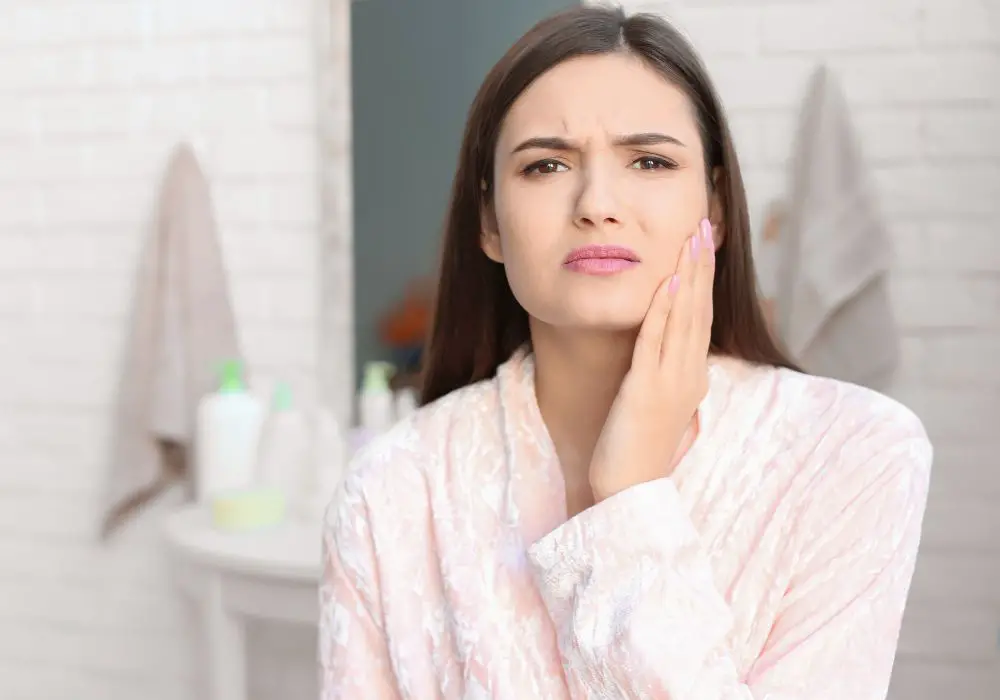
Teeth vibration can cause a range of effects, both short-term and long-term. In this section, we will explore the effects of teeth vibration in more detail.
Short Term Effects
Short-term effects of teeth vibration may include:
- Discomfort: Teeth vibration can cause discomfort and soreness in the teeth and jaw.
- Sensitivity: Teeth vibration can cause increased sensitivity in the teeth, making them more sensitive to hot and cold temperatures.
- Headaches: Teeth vibration can cause headaches, particularly if the vibration is severe or prolonged.
- Difficulty eating: Teeth vibration can make it difficult to eat, particularly if the vibration is severe or affects the front teeth.
Long Term Effects
Long-term effects of teeth vibration may include:
- Tooth damage: Prolonged teeth vibration can cause damage to the teeth, including cracks, chips, and fractures.
- Gum damage: Teeth vibration can cause damage to the gums, including receding gums and gum disease.
- Tooth loss: Severe teeth vibration can lead to tooth loss over time.
- Jaw problems: Teeth vibration can cause problems with the jaw, including TMJ disorders and jaw pain.
It is important to address teeth vibration as soon as possible to prevent long-term damage to the teeth and gums. If you are experiencing teeth vibration, it is important to speak with your dentist or doctor to determine the underlying cause and develop an appropriate treatment plan.
Prevention and Treatment
If you experience vibrations in your teeth, there are several lifestyle changes and medical treatments that can help alleviate the symptoms.
Lifestyle Changes
- Reduce caffeine intake: Caffeine can contribute to teeth grinding, which can cause vibrations. Limiting your intake of coffee, tea, and other caffeinated beverages can help reduce the frequency of teeth grinding and vibrations.
- Reduce stress: Stress can also contribute to teeth grinding. Find ways to manage stress, such as practicing relaxation techniques, exercising regularly, or talking to a therapist.
- Avoid chewing on hard objects: Chewing on hard objects like pens or pencils can put pressure on your teeth and contribute to vibrations. Try to avoid this habit.
- Wear a mouthguard: If you grind your teeth at night, wearing a mouthguard can help protect your teeth and reduce vibrations. Talk to your dentist about getting a custom-fitted mouthguard.
Medical Treatments
- Botox injections: Botox injections can help relax the muscles that cause teeth grinding and vibrations. This treatment is typically reserved for severe cases that don’t respond to other treatments.
- Medications: Your dentist or doctor may prescribe medications to help relax your jaw muscles and reduce teeth grinding. These medications may include muscle relaxants, anti-anxiety medications, or antidepressants.
- Dental treatments: If your vibrations are caused by dental problems, such as misaligned teeth or a bad bite, your dentist may recommend dental treatments like braces or oral surgery to correct the problem.
- Physical therapy: In some cases, physical therapy can help alleviate teeth grinding and vibrations. Your therapist may recommend exercises to help relax your jaw muscles and reduce tension.
Remember, it’s important to talk to your dentist if you’re experiencing vibrations in your teeth. They can help you determine the underlying cause and recommend the best course of treatment.
Frequently Asked Questions
Why do my teeth feel weird all of a sudden?
There are several reasons why your teeth may suddenly feel weird. One possible cause is tooth sensitivity, which can occur due to gum recession or enamel erosion. Other causes may include teeth grinding or clenching, which can lead to tooth sensitivity and discomfort. If you experience sudden tooth discomfort, it’s important to see a dentist to determine the underlying cause.
How to stop bottom teeth tingling?
If you’re experiencing tingling in your bottom teeth, it may be due to nerve damage or irritation. To alleviate the discomfort, you can try massaging the area around the affected teeth or using a desensitizing toothpaste. If the tingling persists, it’s important to see a dentist to determine the underlying cause and receive appropriate treatment.
Tingling teeth anxiety?
Anxiety and stress can cause a variety of physical symptoms, including tingling teeth. This is because anxiety can cause muscle tension and teeth grinding, which can lead to tooth sensitivity and discomfort. If you’re experiencing tingling teeth due to anxiety, it’s important to address the underlying cause of your anxiety and practice stress-reducing techniques such as meditation or deep breathing exercises.
My teeth feel uncomfortable?
If your teeth feel uncomfortable, it may be due to a variety of factors such as tooth decay, gum disease, or teeth grinding. It’s important to see a dentist to determine the underlying cause of your discomfort and receive appropriate treatment. In the meantime, you can try using a desensitizing toothpaste or avoiding foods and drinks that may exacerbate your discomfort.
Tingling sensation in teeth and gums?
A tingling sensation in your teeth and gums may be due to nerve damage or irritation. This can occur due to a variety of factors such as gum disease, tooth decay, or teeth grinding. To alleviate the discomfort, you can try using a desensitizing toothpaste or massaging the affected area. If the tingling persists, it’s important to see a dentist to determine the underlying cause and receive appropriate treatment.
How do you fix tingling teeth?
The treatment for tingling teeth depends on the underlying cause. If the tingling is due to nerve damage or irritation, your dentist may recommend a root canal or other dental procedure to alleviate the discomfort. If the tingling is due to teeth grinding or clenching, your dentist may recommend a mouthguard to protect your teeth. It’s important to see a dentist to determine the underlying cause of your tingling teeth and receive appropriate treatment.




